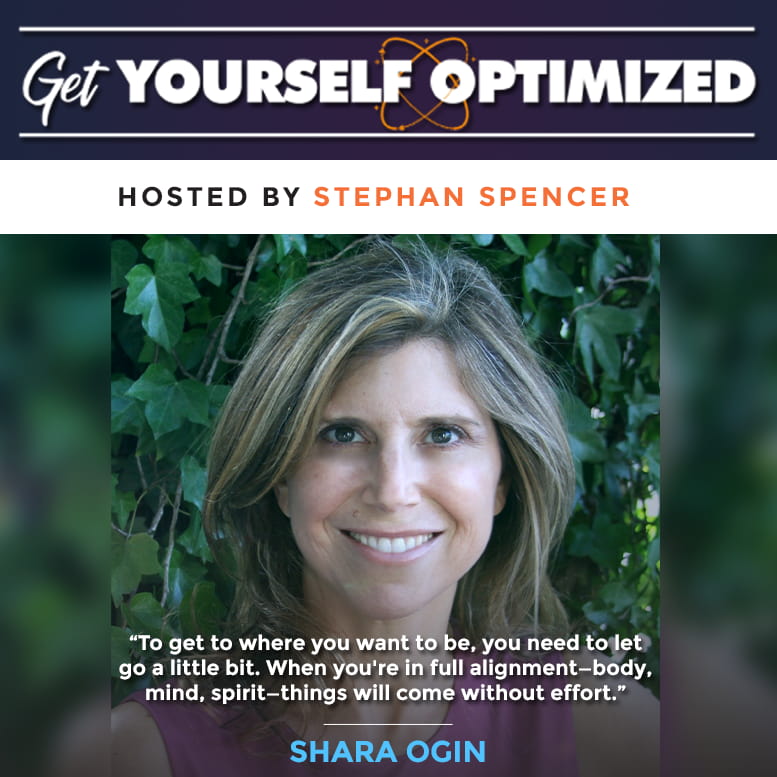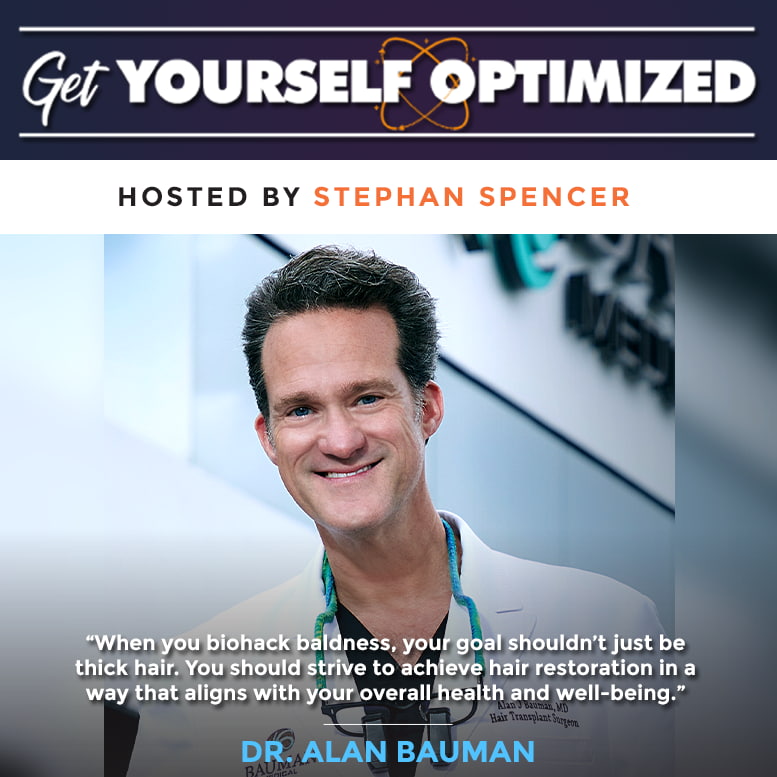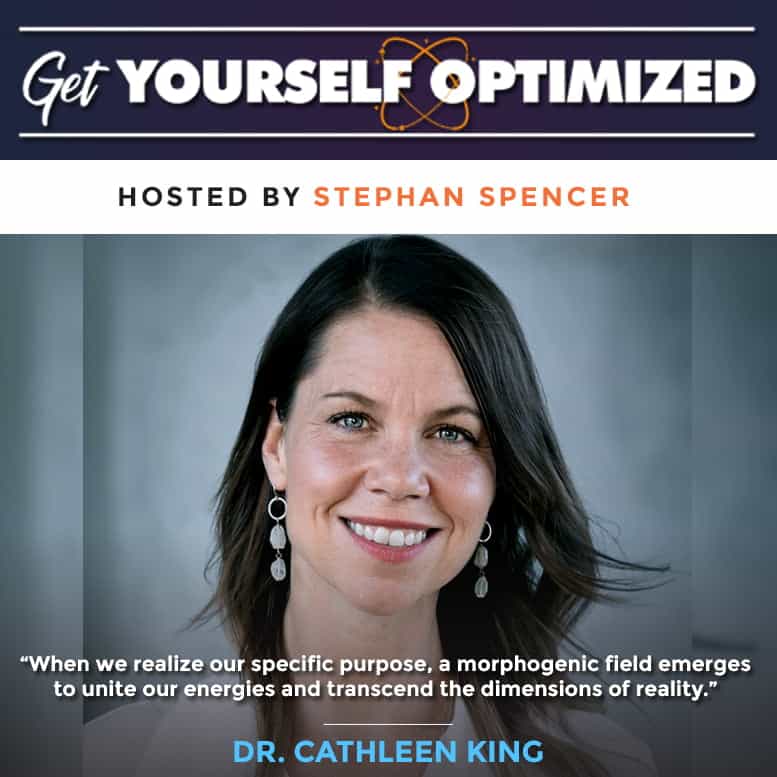Transcript
Dr. Jay, it’s great to have you on the show.
Thanks for having me.

Let’s start with Estrogeneration. I had not heard this term before. I certainly know that estrogen is bad for men, that we should try and reduce our soy intake, but there are implications for not just men if we take in too much estrogen. Could you lay out the implications of too much estrogen and where we end up getting it from?
For sure. Natural estrogen, of course, is a beneficial thing in a lot of ways, especially if your testosterone is high. You’ve got to have a correct ratio between your testosterone and you’re estrogen. That goes for men and women. Of course, if those natural hormones get out of balance, you see a lot of interesting problems. Postpartum depression is a good example in pregnancy and some natural processes like fat gains. When a woman becomes pregnant because her estrogen goes up, that’s a natural thing. It’s a good thing. Our ancestors didn’t always have access to food. You need that storage and that energy.
Just with those two examples, depression and increased weight, specifically fat, when you start adding these artificial estrogens into the mix and into people’s bodies through plastics, personal care products, some of these herbicides, through soy like you mentioned, there’s a lot of them out there really.
They’re additives. They’re all adding on top of each other. They’re all acting like estrogen and then you see those exact health problems. You see the depression, fertility issues, weight gains. You see literally seven different problems that are fairly consistent health risks between all of these artificial estrogen chemicals.
Right, so it’s not just about the soy. It’s about certain products that you could end up either putting on your body or in-taking into your digestive system. What other ways can you end up getting impacted by these chemicals, besides on your skin or in food?
That’s pretty much it. THC is not estrogenic and neither is CBD from marijuana but if you smoke marijuana, for some reason actually lighting it all up on fire, it actually acts like estrogen. They’ve done studies on that, so just breathing in the smoke. They’ve done studies on lavender essential oil and they show that acts like estrogen and activates estrogen receptor.
The New England Journal of Medicine published a paper because a lot of people are skeptical about that. There have been multiple studies, different brands of 100% pure essential oil, lavender consistently act like estrogen at the receptor level in cell studies. You also see it with little children, if they have a lot of lavender exposure. Oftentimes, they go into puberty at one year old and things like that. As soon as you remove those lavender products, their puberty reverses and they go back to normal.
That’s another unique one where I think breathing it in can have an impact. There’s a lot of studies on air quality with some of these plastic chemicals that are in cars, for example. There are two of them. There are the phthalates, just from the plastics and then there’s another chemical called benzophenone.
Oftentimes, on sunscreen labels, they caught oxybenzone, which by the way, they’ve just made illegal in Hawaii, because the sunscreens are killing off all the coral reefs. They use estrogen chemicals commonly used in sunscreen. They’re not in all sunscreens but they’re commonly found. They’re problematic because they don’t just mess up our health, they mess up the wildlife health and it circulates the globe.
These sunscreen chemicals, Hawaii made illegal. There are literally three or four other countries that are making it illegal. They’ve pledge by 2020 to make them illegal. Those actually come out on the exhaust, when you turn your air-conditioner on in your car and it’s really hot. The heat amplifies a lot of that leeching even into the air.
There are studies showing, not only is it a risk for your health, it’s exceeding the cancer benchmarks and things like that set up by the EPA. Once you get to those levels, that’s way higher than I like to see. You start manipulating your estrogen and ruining your endocrine system, disrupting your endocrine system at really low levels and those of the levels I find are most problematic because people don’t think it’s a big deal.
People disrupt their endocrine system on the daily. Constant, low-level damage is the most problematic because people don't think it's a big deal. Click To TweetRight, and then, I would presume that a baby would be even more susceptible, so lathering up your baby with sunscreen that has the benzophenone and so forth is going to be not good.
100%. You get a transfer with testosterone, with estrogen, with artificial estrogens. You should look at the headlines. It’s amazing. I’ve posted them on my Instagram recently with the sunscreen because they show that one application of sunscreen, I think seven days later, it was still in the people’s blood, above the EPA’s own recommended limits for these exact estrogen chemicals that I’m concerned about. Then the chairman of the FDA or something, he came out and said, “We need to do more studies. We’ve never looked into this.” We’ve had them legalize for 20 years and they’ve never looked into it? That’s a huge problem in itself.
Again, it goes back to the fact that it’s not really that toxic. It’s not killing us. If you take cells and you grow them in a dish in some fake blood and some liquid media, and you put BPA on them or phthalates or parabens or whatever xenoestrogen, it doesn’t really kill the cells, because it’s like natural estrogen. The cells are kind of used to that natural estrogen. It disrupts cells, it causes problems, but it doesn’t kill them. The toxicity levels are actually really high. It takes pounds of the stuff and loads of exposure to actually kill mice and rabbits, and all this kind of stuff in animal studies.
The classically trained toxicologists aren’t that concerned about exposures, but now that we understand epigenetics and how it impacts our health slowly over decades and then the next generation and four generations out, literally four generations are affected by our exposures, then it’s a bigger problem. That’s where I get the Estrogeneration because the next generation is affected.
Literally, there’s a guy, Michael Skinner. He’s shown four generations are affected by these exact chemicals. Not just three generations. The reason four so important is because if you’ve got three generations that are affected in health studies, oftentimes scientists will say, “Well, if you expose a pregnant mother, if it’s a mouse or something, the mother mouse is exposed and there’s a fetus in there, that’s exposed, but then those fetuses also have the egg and sperm cells, they’re all exposed in one shot.”
You can argue that three generations are literally being exposed if you’re exposing a pregnant mother, but when you look at four generations, there’s no longer direct exposure. It has to be epigenetic, in other words, the marks on top of the DNA have changed and those are also passed on. Does that make sense?
It does.
That’s a big problem.
I have a masters in biochemistry that I don’t use ever.
You just did now.
I’m pulling it out now. Okay, awesome. Four generations out, that’s pretty scary. We need to be very careful of our progeny and their progeny and so forth, that we were making good choices, buying the right products, avoiding exposure through environmental toxins and that sort of stuff.
You can go to extremes on this and then you get all stressed out. That actually has a negative repercussion on your health and your unborn children and so forth. What’s practical? Give me and our listener kind of a view of what your life is like with your family and trying to minimize your guys’ exposure. What sort of things do you do on a day-in-day-out basis?
You have to filter your drinking water. That’s one of the fundamental things. Activated charcoal gets it out. The city or municipal systems do not filter out artificial estrogen chemicals. They’re great at killing bacteria and viruses. Adding chemicals and filtering it at a really crude level but not down to the level of these estrogens. Activated charcoal grabs them all. I’ve published peer review and scientific papers using activated charcoal to strip out hormones and artificial hormones from a liquid. It works. As long as your filter has an activated charcoal unit, you’re getting them out.
That’s easy, most people do that hopefully and if they don’t, they sure should. The next big one that I see most people really failing on, there’s probably a couple of big ones. I’ll give you both of them. The next one is the personal care products, most people are using cheap personal care products that have a lot of these artificial fragrances and these phthalates and parabens. The problem is it’s not easy to figure this out because on the ingredient list, oftentimes, they use the word perfume or fragrance. They’re allowed to kind of hide these chemicals in those lists because they’re trying to legally protect their secret formula.
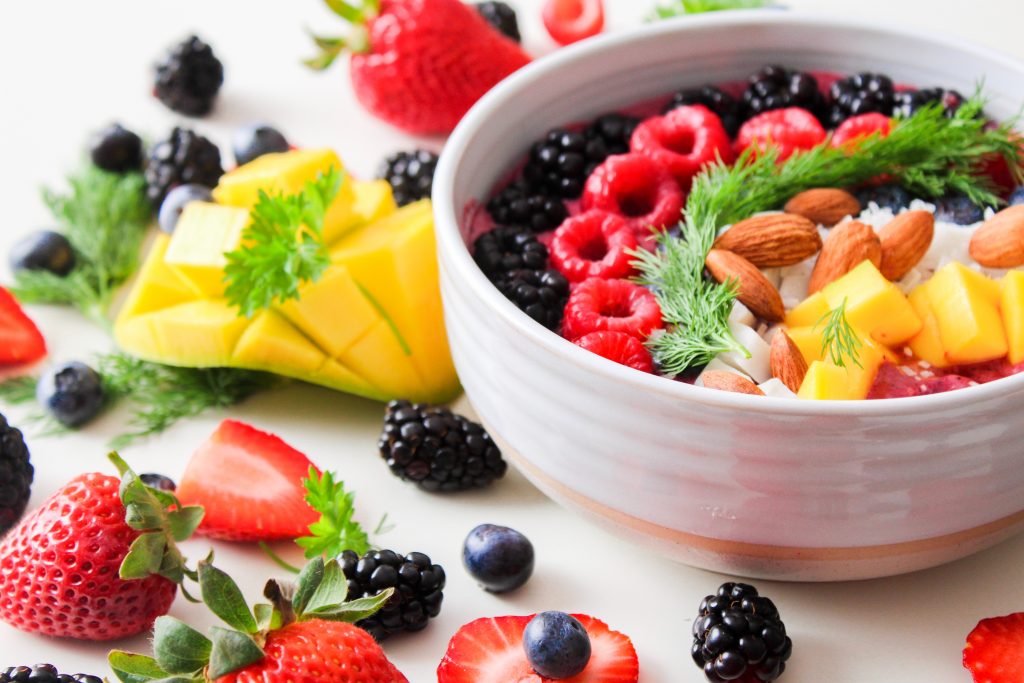
It’s proprietary, so they don’t have to reveal all the substances that are in the shampoo. You kind of either have to trust the company or find a company that actually lists all the ingredients. There’s a lot of them out there, thankfully. There’s a lot of great companies but then you have to kind of find some that are affordable for you, in your situation or whatever. I’m not against fragrances but you got to be careful. They’re using that word fragrance and they’re not telling you what’s in it. Most often, there are some estrogen chemicals there and people are putting them on their skin every day, like you’re rubbing the soap on your skin, you got the shampoo, you got the deodorant, you got the lotion, it just goes on and on there. You’re putting the sunscreen.
And if it’s a baby, some diapers have fragrance and you’re exposing them 24/7.
Right, it’s crazy.
Like the Pampers Swaddlers. I bought the first package, open it up and like, “Whoa,” that smells really artificial. I took it back. I just can’t put it on my baby.
100%, I agree. I’m glad you’re paying attention. Most people, for some reason, it’s a marketing benefit when they do stuff like that. People want to see that and I’m on board with you. I’m the opposite, I think people should be the opposite and should be appalled. Even the trash bags. You get these trash bags and they’re breeze-scented or whatever. It’s unnecessary, you don’t want to have these chemicals. More chemicals are more problematic in general.
Right, how do you get behind what these fragrances are to see if they’re toxic?
You have to do third party testing. There’s a documentary called Stink. The guy that did the documentary was not a scientist but his wife died of breast cancer. Of course, breast cancer is up 250% since 1980. These estrogen chemicals without a doubt increased the risk of breast cancer. You can’t even find people that aren’t exposed to these chemicals, so the studies are really challenging to do to try and figure out if BPA, phthalates, or parabens are increasing breast cancer because everybody’s got them in their body. But you can find populations, people that have less. You can find people that are peeing out more.
The Stink documentary, what he did is, because his wife died of breast cancer and left him with two daughters, he was worried about these chemicals. He started reading about it and recognizing the problems here with artificial estrogen because they stimulate breast development, abnormal breast development, and of course, breast cancer. When he was getting pajamas, I think, some articles of clothing for his kids, it just had a real strong chemical smell like they always do. You open those brand new clothing packages and it just has this chemical, so he’s worried about that. He sent a piece of it away to a lab and they have these exact chemicals we’re talking about just infused with them.
You have to go to such an extreme to kind of figure that out and determine that. He did thankfully, but nobody’s doing that. Certainly, if you buy new clothing, I put it in the laundry right away. I don’t wear brand new clothing, I wash it out.
Bedding can be the worst.
Exactly.
You have to off gas that for days before the smell goes away.
In fact, when I travel, I bring my own pillowcases and make sure they’re cotton and I put them right over the hotel pillowcases. I don’t take any chances. I just figure the sheets are not as big of a deal, but I don’t want to be breathing in the chemicals all night that is on somebody else’s laundry detergent because there’s been a lot of studies with that, but they’re in these plastics too. That’s another giant issue.
People are storing water in plastics or food in plastic, especially if it’s hot. There are three components to leaching with plastics, number one is heat. The hotter something is, the more leaching you get because there’s more molecular movement going on, so you get just more transfer.
The other aspect is duration. Just how long something sits in a plastic bottle. It indicates how much leaching you’re going to get. If it’s sitting in there longer, of course, you’re going to get more leaching.
The final thing is oil. The more oily something is, the more leaching you’re going to get with these artificial estrogens because they’re kind of oily substances. The worst case scenario is olive oil or any kind of oil in a plastic bottle that’s been sitting in a hot car, sitting in a hot warehouse, or whatever for a long time. That’s the triple problem. Most scientific studies when they’re looking at fat and they’re trying to say, “Olive oil is unhealthy,” or whatever. Most of the time, those are the exact oils they’re using. They’re sitting in plastics for a long time. It’s heated up somewhere in a warehouse or whatever.
The more we understand epigenetics and how it impacts our health slowly over decades and then the next generation and four generations out, the more it seems to be a bigger problem. Click To TweetOr just sitting on your doorstep in heat all day until you come home from work.
They’re actually studying artificial estrogen, not actually studying olive oil or whatever they’re claiming because the health problems in those animal studies match up really strongly with the health problems with just those peer chemicals.
I also learned from going to a Tony Robbins seminar about how the clearest, pristine-looking oils are the most unhealthy. Canola oil that’s all crystal clear, you can see through is Dranoed and bleached and all that crazy that they have to do to make it look so clean so you want to buy it, but it’s really mistreated and you don’t want to consume that stuff.
100%, those oils are fragile. I always like to tell people to steer towards the fruit oils instead of the seed oils. The seeds require so much more chemical processing which isn’t exactly relating to estrogens, but it is related to health, and people need to know. The seeds, when you’re processing them, just think how much oil is actually in vegetables, not much. These fruits like avocados, olives, coconuts, it’s easy to get oil out of those, you just squeeze them so the oil is a lot healthier.
Right. Also, they have different temperatures where they breakdown. The coconut oil is better for cooking than something that’s more fragile. Give an example of a fragile oil that you wouldn’t—
Olive oil. I don’t cook with olive oil because it’s polyunsaturated. There are multiple double bonds and that reactive oxygen a lot more readily. I like saturated fat for cooking. Butter, coconut oil, that’s exactly what I use.
Speaking of butter, I’m vegan for the most part, but I know Dave Asprey who’s been on the show has lauded the benefits of grass-fed butter. The course that goes into your Bulletproof coffee and all that. What are your thoughts about butter being grass fed or just regular? Are you into grass-fed butter or not?
If I was going to open my fridge behind me, there’s definitely some Kerrygold in there or some kind of Irish grass-fed butter.
New Zealand is good, too, for grass-fed like Anchor brand.
I’m a meat eater for sure. I hunt and fish. I’ve tried to find remote areas where these animals are really healthy and I’m a huge fan of hunting for my own meat. I even butcher it myself so I know how the packaging is done and everything. I use wax paper and then I freeze or seal it in a plastic freezer sealing unit instead of putting it directly in contact with plastic. It’s minor details like that. I feel like the more you can do to eliminate artificial estrogens in small ways, the better.
The big ones I think everybody should be doing but then when you’ve got some opportunity to take it to another level, oftentimes you’re helping the environment by switching to glass, for example, where you’re storing your food instead of these plastic containers. You’re helping the environment and you’re helping your health, so it’s kind of a win-win.
Right and just having that awareness of where these plastics come from. I just learned last week that black plastic comes from recycled electronics. Every time I get take out from the Thai food place nearby or whatever, they give me a black plastic container with the pad thai or whatever, and that was electronics before. That is disturbing. That black plastic isn’t even recyclable. You might as well just throw it in the trash because it has gone through too many uses that it’ll just end up in the landfill anyway.
It’s a situation that needs to be rectified at a global level. BPA is an interesting example of all this. The federal government of America has done nothing about making BPA illegal, but 17 states have made it illegal at least in children and baby products. There are tens of thousands of studies, it’s overwhelming how problematic BPA is.
BPA stands for Bisphenol A, which I’m sure you know, but the problem is when you make that illegal, the company will switch to Bisphenol S. There are published studies that it’s just as estrogenic. Meaning, it’s just as problematic. It acts like estrogen just as much in your body. If they made that illegal, they would make BPF. You can literally go through the alphabet and just completely make little changes to their molecule and completely skirt the legal system.
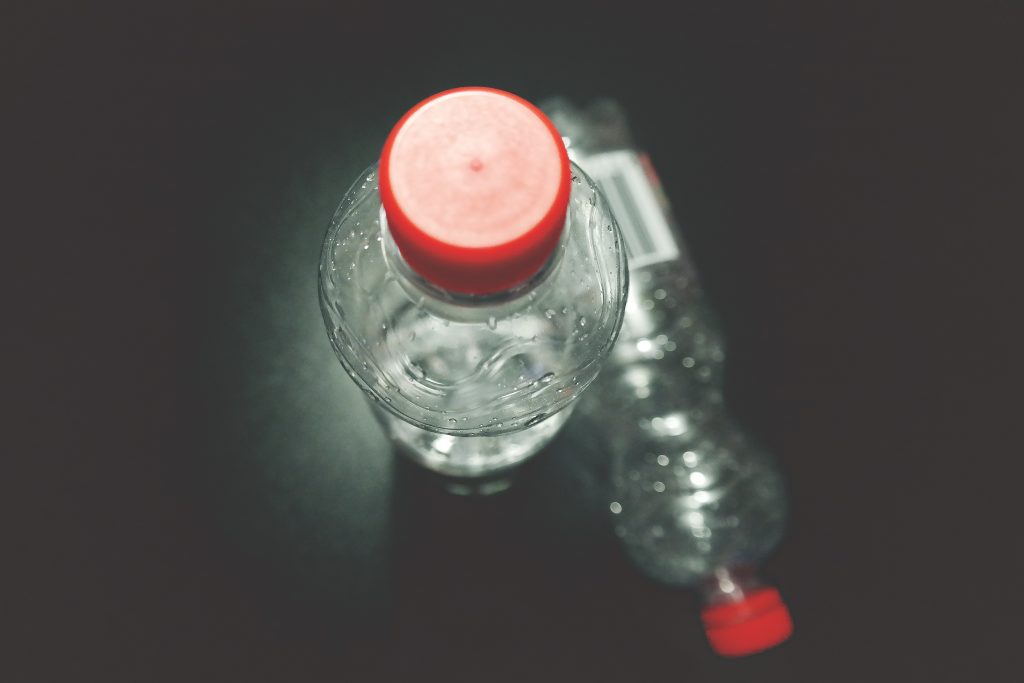
Even if you run out of alphabet letters. They have, for example, one called BPAF. You can add multiple letters, you can just keep skirting the system. I guess phthalates which are also used in plastics are just as estrogenic. They’re problematic. It’s a messy topic when you’re trying to fix the problem by outlawing these chemicals because people work around them. They use the loopholes.
Speaking of these loopholes and skirting the legal system, I recently learned about how the farmers get around the organic certification requirements and they get certified even though they shouldn’t be. They’ll douse the field with five years worth of chemicals, pesticides, and so forth that will last for many seasons instead of just doing it every year. The first two years, they don’t qualify. They have to sell the fruit or veggies or whatever as conventional. Then the next three years until they douse again. It is certified organic. There are enough pesticides to kill all the pests at that season. Crazy.
That’s insane. I even saw the news with this guy in Iowa who is literally just saying he’s organic and not just spraying everything. I think he even committed suicide and I hope I’m not saying that incorrectly. I think he was in-charge of this massive fraud operation and it was just a huge amount of this produce and stuff that’s supposed to be organic and it wasn’t because of this guy. There’s some of that going on too which makes it even trickier.
Wow. It’s like you have to go and inspect the farm, it’s crazy. I used to do that.
You can. I do as much as I can. I grow some stuff and I do go to the chicken farm where I buy my chickens and eggs and things because they do a phenomenal job. I’m pretty picky. I want to see the chickens out there running around. I don’t want to see them just feeding them soy and all these.
If they are free-range it just means that there are no cages and then they pack each other to death because they’re packed in so tight.
That’s meaningless because you just look at the egg yolks, it says it all. Again, I’m not a vegetarian by any stretch. I have two chest freezers and I turn one off and then when I have them both loaded, I have them both on. I only buy chickens in the summertime from farms where they’re out running around and eating bugs and the whole thing, and then I stock up on them, I buy them in bulk, I get a ton of them and I freeze them down.
If you’re buying chickens in the winter, especially in Minnesota where I live, I’m at the Mayo Clinic here, you’re going to have to grain feed them in the winter unless you have some really innovative solution which nobody does around here. That’s how I work around it. Again, small things have big impacts.
What is it about the yolk that tells you that this is an unhealthily raised chicken?
Well, the ones I get from the farmers, the yolks are super orange, they’re dark orange, and then the ones that you get at the store, they’re yellow and watery and kind of weak. That’s a dead giveaway, usually. Although you can skirt the system. There are some artificial dyes that they feed the chickens. Even the yolks in the grocery store that are all really light yellow, even those are artificially bolstered with the color because they feed them these artificial yellow dyes and orange dyes to try and get the yolk darker. I’ve seen studies on that. They’ve already tampered with the yolks in those fake systems just to try and get a little bit of color.
That is wild. They also color the meat so that it looks less old and to extend the shelf life for people to buy it. They also add water to the chicken to add weight to it.
All kinds of stuff. They put in phthalates. When you’re checking the chicken, it’s a particularly high source of phthalates. They’re injecting a lot of these things because they act as bacterial inhibitors. They kill bacterias just like they kill bacteria in your gut lining and things like this. They use them as preservatives.
A good example of that are tortillas. Oftentimes, if you go and you look at the corn tortillas, they’ve got parabens as preservatives. Look at the ingredients, there will be methylparaben, propylparaben, butylparaben, a whole bunch of different parabens in your tortillas. Sometimes you have to watch out because sometimes they’re honest on the label and actually tell you what preservatives they’re using in their estrogens.
Wow. What about the flour tortillas? Are those also…
I never eat them. I’m not sure because I don’t eat grains in general. I do corn sometimes if it’s organic, but I don’t eat the wheat stuff personally. I’m just super sensitive to it. I’ve always been sensitive. When I was a kid, I stopped eating breakfast and I didn’t know why. I just didn’t. I don’t remember. I was young.
It’s debatable that the fourth generation is no longer affected by direct exposure to harmful chemicals. The truth is, it becomes epigenetic. In other words, the marks on the DNA have changed and those are also passed on. Click To TweetMy parents all they had were cereals and looking back now, I think it gave me a stomachache and I’ve never eaten breakfast my whole life because now I know. About five years ago or maybe even 10 years ago, I discovered I’m really sensitive to gluten. I went through an elimination diet. I might even be celiac but I’ve never been tested. I’ve never gone through the testing. I just know it just completely wrecks me. I don’t eat it.
I see. I’ve read articles, things about how gluten sensitivity. Very few people end up with celiac disease. It’s not typically the reason if you don’t feel well eating gluten. It’s not gluten sensitivity as much as it’s glyphosate sensitivity.
They’re small too. One of the categories I have for the estrogen chemicals is mold estrogen because of these molds that they have in these huge silos with all this grain. They oftentimes have a certain level of mold estrogen which contributes as well. There’s so many things going against the food system and these giant bulk silos and all this stuff. It’s a real issue.
The agricultural and industrial complex is not there to keep you healthy, it’s there to make a profit. Crazy. You mentioned an elimination diet. What does that look like? How does a listener apply that?
For me, it was pretty crude. I think the big hitters are usually egg whites. A lot of people are sensitive to egg whites. I’m not sure why but I think it’s because we’re vaccinating so many people and we’re injecting egg proteins into people’s bloodstream through the vaccines, and then you become sensitive. But for whatever reason, I get massive headaches if I have egg whites. I can eat egg yolks all day long. I actually throw away the egg whites.
All these people think they’re healthy by getting an egg white omelet.
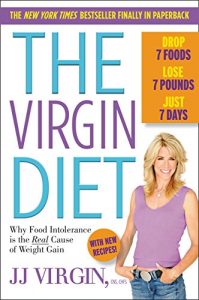
Exactly. It’s a source of protein. It’s probably helping a little bit if you’re not sensitive but eggs seem to be a real hot spot for a lot of people. Dairy is another one for a lot of people. The casein and/or lactose. The grains like I said before and obviously the wheat products and stuff, those are another big one for elimination diets. I think if people tried to eliminate those three and then introduce them back to see how they feel, that covers a lot of it. I’m not super expert on it. I actually like JJ Virgin’s book The Virgin Diet. It’s a good elimination diet just for people that have never done any elimination. I think that’s actually what introduced me to the concept a long time ago.
I’ve had her on the show; she’s great. We’ve talked about sugars.
That one you should eliminate no matter who you are.
Pretty much. There are different kinds of things you can have allergies to or sensitivities to. One thing that really struck me, that really gives me insight into the agricultural system, is a friend of mine who was allergic to bananas. Then by accident, he found out he was not allergic to organic bananas. He didn’t mean to consume it, but somehow it was in the dish and he found out afterward he didn’t have a reaction, which he would have had a very violent reaction to. This stuff makes it through the peel. It does matter how thick the peel is. The stuff gets through.
That’s insane. That’s really interesting. I know it’s frustrating, too. Obviously, the number one used antibiotic in the world is glyphosate. It’s just wracking our gut bacteria and that’s just the beginning of the problems.
Let’s talk about gut bacteria and how important they are. There’s a lot of discussion about the microbiome and how important it is, yet we take antibiotics even though we were sick with a cold that’s almost certainly viral. There are all sorts of things that we’re doing to wreck our gut microbiome and it has pretty far-reaching implications, right?
For sure. When I do these DNA consults, some people have a gene or their vagus nerve is particularly sensitive to issues and that actually causes a lot of leaky gut issues. It doesn’t matter what your genetics is. If your gut bacteria is messed up, you’re having health issues or mental issues or both. They’re interrelated.
It’s such a tricky field because what’s a good gut biome look like? That’s a really difficult thing to define and it’s so complicated because there’s a species of bacteria, it’s almost a misnomer because bacteria exchange DNA so easily. They can just link up and dumped DNA back and forth across each other’s membranes. It’s such an iffy thing because they’re all a mish-mash of different genetics. That being said, there are clear differences and there are clear indicators that you’ve got good gut health versus bad gut health.
One of the ways I actually use to measure how much bloating I have, how sensitive I am to food, is if I go to eat pizza, for example. This is an absolute 100% sure way to tell if I have issues (and I always do). You take a foam roller, put it on your stomach, and just roll on your stomach. Just between your rib cage and your hips, that little area just basically sitting on there. If your stomach hurts, you probably got some gut issues going on. If your stomach is fine, you probably don’t.

Like I said, if I eat pizza it’ll hurt hell. I’m sitting on that foam roller, pressing it into my stomach. But if I’m eating the way I should be, I can roll on that thing fine. Some people’s muscles are just really tight so you might take a little bit just to adapt to the foam roller. I use a foam roller all the time for my IT band. If people don’t know what that is and what that means, they should check it out because it’s phenomenal but specific to the gut. It’s a cheap and easy way to just monitor how your gut’s doing.
Do you take probiotics?
Sometimes.
How do you reinforce the good bacteria growing?
I do intermittent fasting and that makes a big difference for me because I’m definitely more prone to IBS from eating too many meals a day. I definitely have the situation sometimes where I’m sitting there and suddenly, all hell is breaking loose. So, intermittent fasting is a big one. I tend more toward CBD if I eat something. If I go out to eat and I have an issue, CBD for me actually really works if I take a really high dose and really good quality CBD.
Again, going back to genetics, it’s interesting because a lot of people have a genetic variant in their cannabinoid receptor, the receptors where CBD binds to, and it actually gives them a risk for leaky gut. If you’ve got that gene, taking CBD seems to really be beneficial. It certainly is for me just from my experience.
CBD kind of gets a bad rap because it’s connected to the supposedly illegal substance of cannabis, but it’s not. CBD by itself is not illegal. You can get CBD oil that doesn’t have any THC, so there are no psychoactive compounds to it. I personally haven’t been taking CBD. I think I tried it once without any THC in it. I’ve never wanted anything. Give us a bit more about the benefits of CBD and maybe your thoughts on THC as well.
THC is one of the cannabinoids but obviously, it makes you high. You take a pretty low dose of that and you get high, so if you take a high dose to try and get the health benefits just from THC, you’re not going to probably get the health benefits. It’s going to be too much.
The CBD is tricky because there are so many companies and a lot of them are making really poor quality products. I know this because I’ve seen the third party test. There will be products that say they have 10 milligrams of CBD per serving, you measure the serving, you test it, and you’ll have 1 milligram of CBD. It’s literally a tenth of what you’re getting. Who knows all the pesticides and things, so you’ll have to watch out for that. There’s not a lot of good companies out there, but they’re out there.
The benefits are generally related to anti-inflammatory benefits because it does suppress a lot of these inflammatory pathways. It helps people that are over-inflammed but I don’t think it’s a solution for people.
A better analogy is testosterone. A lot of guys take testosterone, but sometimes you have low testosterone because you have a lot of heavy metals, for example. You’re eating a lot of mercury-laden fish or something, you’ve got a high mercury level, and then your testosterone will tank. Then you say, “Oh, my testosterone tanked so let me inject testosterone.” But then, you keep eating the mercury-laden fish. You still have mercury toxicity but now your testosterone is fine. You still have problems. You do not address the root cause of the problem.
CBD can be that. If you’re eating a bunch of pizza every day or something, it’s causing inflammation, and you’re just taking CBD, you’re going to still have some residual problems. It’s not a long-term solution for root cause problems like that.
It’s just kind of a Band-Aid that masks the real problem, that may take even longer to solve.
Exactly. I’d like to tinker with it. I have an Oura ring and I like to look at the sleep changes. Again, that could be related to the anti-inflammatory aspects, but I’m not sure. But yeah, I’ve done some YouTube videos on it. I have a channel called Chagrin & Tonic, just like my book series. I dive in pretty deep on the scientific studies.
The government had a 200-page report on scientific studies. They summarize the scientific studies from CBD, and they’re just from cannabinoids, in general, including THC. It was really interesting. There’s a lot of good scientific research. It’s just overwhelming and just to have a summary like that, even a 200-page summary which is way too long, I had to summarize the summary.
It was interesting to look at because a lot of these purported issues like schizophrenia, for example, a lot of times people say, “Well, don’t take marijuana if you’ve got a risk for schizophrenia.” But now, they’re actually investigating it as a benefit to protect against schizophrenia because it’s so anti-inflammatory, but not the THC, just the CBD on it. So, there’s a little bit of a yin-yang here and care when you’re talking about a lot of that stuff. It’s interesting.
So the 200-page summary and then your summary of that summary. I wanted to mention the documentary. You mentioned this documentary which I’m going to check out.
I just saw The Biggest Little Farm documentary on Netflix. It was great.
Interesting. I’ll check it out. What’s the topic?
The topic is that they went against the grain, against the traditional profit motives. They raised the animals, and grew the fruits and vegetables in a very thoughtful way. It was a really compelling documentary and it was multiple years. They had some problems, then they tried to solve them. It was just fascinating. Really gave an insight on how we could have farms that aren’t toxic.
It’s a big problem. It doesn’t matter if you’re a vegan or a carnivore or anywhere in between. The way we’re farming in this country is definitely not a long-term sustainable solution.
It’s not even helpful.
You mentioned that you have to be careful about which CBD oils you buy. Any brands that you want to mention that passed your test as far as which brands do you buy? I know Soul CBD, I’ve heard that that’s good, but curious what your recommended brands might be.
I always buy a lot of different ones and I test them, but the summary where I stay up to date is on my website, AJ Consulting Company. I have a page on there —ajconsultingcompany.com— terrible website name, but it is what it is at this point—ajconsultingcompany.com/whatiuse. It just tells the personal care products I use and a lot of supplements that I like, that I’ve looked at the third party, I have it on there.
That’s a great page by the way. That was one of the reasons why I contacted you. This is so valuable.
Thanks. I don’t have any product endorsements. I feel like I’m unbiased, but I like the Bluebird Botanicals CBD. That’s my favorite, but there’s another one called CBDistillery. I also that one. It’s more of a purified version, so it’s crystal clear-looking. It looks like water but it’s definitely got CBDs in it. But the Bluebird Botanicals, on the other hand, is more like a real unrefined extract. It’s cloudy-looking, and it’s more like the raw CBD extract, but they’re both phenomenal.
Natural estrogen is beneficial in a lot of ways, especially if testosterone is high. You need a correct ratio between your testosterone and your estrogen and that goes for both men and women. Click To TweetAwesome. Thank you for that.
All right. There are a few things that I wanted to circle back to and get more of your thoughts on before we go into the whole DNA analysis side of things. You mentioned that you use a foam roller, in particular, to help with your IT band. Why is that important? How does that help and why should our listener care about that?
I like to do little demos at my house when I have guests over and stuff. It’s entertaining because most people have a really tight IT band. It’s basically between your knee and your hip, for people that don’t know. It’s on the side of your body and you just get on the floor. Again, you probably have to watch a YouTube video to really understand how to do that process.
I’ve got a pretty tough foam roller. It’s got little bumps on it and stuff, so it’s not a real soft piece of foam like some of them are. Mine’s pretty hardcore. You feel it. It hurts, but you have to ease into it. If that IT band is super tight, it actually pulls on your knee cap and it leads to a lot of joint issues relating to your knee.
So, you want to make sure that the IT band is loosened up and I do it literally before I work out every time. Usually, you don’t want to do stretching before you lift weights, but you actually can in foam rolling. It’s activating a different thing. It’s a different process than stretching. That’s just part of my routine. I don’t want to injure my knees. In my family, my brother, my dad, my mom even, had a lot of different knee surgeries and issues. I’ve had doctors recommend knee surgery and then I did my own thing.
For example, I tore my meniscus at one point when I tried to run a marathon. They told me I needed surgery and then I didn’t do it, but I did a lot of supplements and just was more careful about the inflammation. I’ve since had no issues ever. I also started barefoot running which helped a lot.
Wow.
Barefoot running is phenomenal for your needs.
You can’t be just running anywhere. You could be running on meadows or…
I did.
Really?
I go up sidewalks. I’m kind of known in Boston. My neighbors see me barefoot run all the time with my kids. One time I was coming back from work, I took the train, then I walk from the train, which is two miles. I didn’t do that that often, but I was coming back from work, of course, I had my work clothes on, my shoes, and everything, obviously, and my neighbors are like, “Hey, what’s going on? You’re wearing shoes.” They’re so used to seeing me just on the sidewalks going around barefoot.
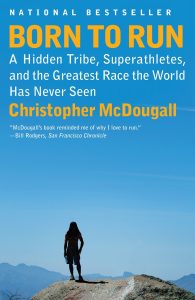
You can use minimal shoes, but for me, I do ball for sure, but the mandatory thing is if you’re using those big cushioned shoes, I heel strike and most people do it. You reach out with your foot, you put your foot ahead of your body, and you land on your heel, it doesn’t hurt because it’s still cushioned. But if you do it barefoot, it hurts like crazy. You can’t do that, so you have to run with your feet underneath your body which is a lot better for your needs. It was a life-changer for me. I read the book, Born to Run, when it came out and it’s just transformed my knees.
Great. What about those shoes where they’re like fingers…
Five-finger shoes, Vibram shoes. I have some of those. I don’t wear them very often. There’s a brand called Merrell that I really like. I’ve gotten a lot of different minimal shoes, but most of the time the heels are too square on the back. I tend to run on the outer edge of my heel, which may or may not be good. I don’t know, but that’s just what I do. If I wear really square shoes, even if they’re minimal and there’s no lift, no cushion, if they’re square-shaped on the back, it feels strange to me. Those Merrells feel real similar to my bare feet. That’s usually what I use now, although I do have the five-finger ones, too. They’re kind of weird.
They look weird but I guess running barefoot would look weird, too. I don’t worry about looking weird, I guess.
True. I think it’s good for you.
You don’t need to mind what people think.
Exactly. In the gym, for example, it’s a good antidote to ego when you’re doing stuff that nobody else is doing and if it’s good for you.
Is popcorn bad for your gut? Organic popcorn? I’ve heard that they can poke little holes in your gut lining.
Interesting. I don’t have any issue. Certainly, for some people but it depends. To be honest, when I do genetic consulting, almost every single person has some leaky gut issues. It’s amazing. Some people have heart attack disease risks and plaque in artery risks and all this, but definitely not everybody. Almost everybody does have leaky gut genes but they’re so diverse. There so many of them and they’re so different.
One of them, for example, is called NOD2. It’s a terrible name. It’s like nucleotide oligomerization binding domain gene. It used to be called inflammatory bowel disease protein, which is actually a lot easier to remember and a lot more natural because that’s what it’s linked to inflammatory bowel disease. That particular gene, for example, increases your risk of leaky gut through something called inflammasomes, which are as bad as they sound, little balls of inflammation.
What’s cool is there’s a scientist. His name’s Dom D’Agostino and he’s done research on ketones and how they inhibit inflammasomes, specifically. If you’ve got that gene issue, you’re making too many inflammasomes in your gut, and that’s causing leaky gut, then you should definitely take exogenous ketones or you should go into ketosis, intermittent fasting higher fat sort of thing. That will actually really protect your gut but then not everybody has that.
There are different forms of leaky gut and they’re so diverse. It’s not really a one-size-fits-all in my experience. It depends on the lifestyle, too. A lot of people messed them up through their lifestyles and that can vary even more widely than genetics.
Okay. This was a good segue to talk about DNA analysis, getting yourself tested and all that. I’ve had 23andMe. I’ve actually just reordered 23andMe kit because the last time I did it, it was the second generation. Now its fifth generation. Supposedly, I’ll get a lot better data out of it. I also did Simplified Genetics. I had Kurt Johnsen on the podcast to talk about the testing that they did to tell you what mix of high intensity versus low-intensity workouts—based on your genetics—to do and what mix of macronutrients percentage-wise is best for your genetics. That was fascinating.
I also did the full genome sequencing as part of Human Longevity, Inc. That is a company I learned about through Abundance 360. I did the full-body MRI scan and the full genome sequencing, which I guess they can only get 90-some percent of your genome sequence. They can’t get 100% apparently, but I did that, calcium scoring, all that.
That’s important stuff. I recently had a guy who came back with a really high calcium score. He was super nervous. That’s why he had his DNA done. I got him going on a keto diet, which I don’t recommend necessarily for everybody, but for him, it was really clear. He went back literally six weeks later and had it retested and had a zero. He reversed it within six weeks. Of course, he was eating standard American. He wasn’t by any means trying to be healthy up until that point but keto just completely transformed him, which is a great testimonial for people that say you can’t reverse plaques in your arteries. You can only just halt them where they are with statins or whatever. It’s still BS. You can reverse plaque in your arteries.
I appreciate you asking and it sounds like you have lots of experience. It’s really interesting that you’ve done your full genome, which is phenomenal. The way I do it is I have five categories. I’m looking for the big hitters. I’ve got the brain section, that’s the first section. A lot of these Alzheimer’s risk genes. To be honest, if you’ve got a lot of these Alzheimer’s risk genes, most of the time, those are also risks for just having crappy brain performance, or brain fog, or things like that, with certain dietary issues or conditions or whatever. So, the brain is a big category.
The next category, I do diet. A lot of leaking gut genes, some heart disease genes, really thorough. Diet sections, whatever comes up gets flagged, let’s find solutions. The vitamin hormone in detox is the next section. I know it’s a lot of things combined, but for the most part, it’s just how your body processes things, is the third section for me. The fourth section is exercise and training, and then the fifth section is sleep.
I try and look at all five of those sections, all within a single consult, and really like I said, get the real substantial gene issues. You could spend hours just continuing to dig down further but people need to know the really big ones. There’s unusually enough of those that it transforms your life, if you understand some of the big genetic issues you have and how to fix them, which of course, is the point.
Just identifying the problem is never the end goal. You need to figure out ways to fix them. In the inflammasome example that I mentioned before is a perfect example because if you understand that your body is making more inflammasomes, then all you have to do is ask the question, “Well, how do I lower inflammasomes?” There’s probably dozens of different ways. You can pick one of any. I just pick one and tell people, “Here’s one that I know of. You can probably find others on your own.” I encourage that, but at least you know the problem now that’s specific to your issue.
THC and CBD aren’t estrogenics but smoking marijuana emits estrogen that can be absorbed through the lungs. Click To TweetI have my own software, by the way, too. I have my own code, my software spits out these reports, I write my own, I can change it. It’s a proprietary thing in the sense that I’m not using some third-party software. I have total control over which genes that I’m flagging and what I think are the most substantial gene issues.
Right, because you could download your raw data from 23andMe and then load it into a third party health analysis tool like Prometheus is one that I heard about from Dave Asprey. But what you’re talking about is cutting right to the chase and getting right to what matters the most. We can get bogged down with many minute details and just feel overwhelmed and not make any progress because there are many things that we could be doing better.
I think it saves people in the long-term because you’d be surprised. I’ve got PDFs, Excel sheets from people of the supplements they’ve taken. Some people are taking 50 supplements. It’s insane. Sometimes, it’s just that many supplements are going to cause some weird interaction or weird issues just in and of itself and you’re spending much money, it’s unnecessary. You can actually save money by finding the five most important ones or the seven most important or whatever happens to be in your case, the three most important ones.
Or maybe getting a vitamin or supplement that’s not helping because you’ve got a certain gene mutation. I found out that I’ve got the MTHFR mutation. So, I need to take Methyl B-12 and not just regular B-12.
Folate methyl B-9, yeah. Methylfolate.
That was something I didn’t know about until just this year, in fact.
Right. And there’s another example of that is vitamin E. There’s a doctor, I think his last name is Tan. He’s a real expert in vitamin E. Some people have the GSTP1 gene where they have an issue processing this fake version of vitamin E called alpha-tocopherol. It actually causes inflammation in people.
If you’ve got this gene issue and you can’t process that fake vitamin E, you actually get inflammation through interleukin 6, which is an inflammatory chemical by supplementing vitamin E. It’s actually worse to take vitamin E than to do nothing at all. Of course, if you really want to do vitamin E, in that case with that gene you take tocotrienols. But again, that’s another example of you’re actually harming yourself when you’re taking a supplement that you think is beneficial.
Wow. I should have you back and we should just delve deep into the whole DNA stuff. Fascinating.
Okay, so I know we’re out of time. Where do we send folks to get their DNA consult with you, to get that list of the bad stuff to avoid and the good stuff to buy, the good and bad products? I know you gave the URL before, but just remind our listeners where to go for all this stuff. That all sounds awesome.
Thanks. It’s ajconsultingcompany.com. Again, it’s all there. I appreciate you finding me and hanging out today.
This is great. I’m super excited to implement some of the stuff that I learned from you today. I got lazy about the foam roller thing. I have one in the closet and it’s calling out to me. I think I need to get back.
It’s a great thing.
Thank you so much, Dr. Jay, and listener, now please take some action from this. This isn’t just entertainment and education. This is for your transformation. I’m your host, Stephan Spencer, signing off.
Important Links
- Dr. Anthony Jay
- Facebook – Dr. Anthony Jay
- Twitter – Dr. Anthony Jay
- Instagram – Dr. Anthony Jay
- LinkedIn – Dr. Anthony Jay
- Chagrin & Tonic – Youtube Channel
- Personal Care Products used by Dr. Jay
- Estrogenic Substance List
- Estrogenic Avoidance Plans
- Estrogeneration
- The Virgin Diet
- Born to Run
- Dave Asprey – previous episode
- JJ Virgin – previous episode
- Kurt Johnsen – previous episode
- Mayo Clinic
- Natural estrogen
- Postpartum depression
- THC
- CBD
- New England Journal of Medicine
- Phthalates
- Benzophenone
- Oxybenzone
- EPA
- BPA
- Parabens
- Michael Skinner
- Pampers Swaddlers
- The Stink
- Tony Robbins
- Kerrygold
- Anchor
- Bisphenol S
- JJ Virgin
- Glyphosate
- Oura ring
- Schizophrenia
- The Biggest Little Farm
- Netflix
- Soul CBD
- Bluebird Botanicals CBD
- CBDistillery
- Vibram shoes
- Merrell
- NOD2
- Dom D’Agostino
- 23andMe
- Simplified Genetics
- Human Longevity, Inc
- Abundance 360
- Prometheus
- MTHFR
- Methyl B-12
- Methylfolate
- GSTP1
- Alpha-tocopherol
Checklist of Actionable Takeaways










 About Dr. Anthony Jay
About Dr. Anthony Jay
Dr. Anthony Jay is a Mayo Clinic Scientist, DNA Consultant, Author, and CEO of AJCCo. Dr. Jay has one goal: to empower individuals through simplified sharing of invaluable scientific ideas and the art of self-knowledge.
Disclaimer: The medical, fitness, psychological, mindset, lifestyle, and nutritional information provided on this website and through any materials, downloads, videos, webinars, podcasts, or emails is not intended to be a substitute for professional medical/fitness/nutritional advice, diagnoses, or treatment. Always seek the help of your physician, psychologist, psychiatrist, therapist, certified trainer, or dietitian with any questions regarding starting any new programs or treatments, or stopping any current programs or treatments. This website is for information purposes only, and the creators and editors, including Stephan Spencer, accept no liability for any injury or illness arising out of the use of the material contained herein, and make no warranty, express or implied, with respect to the contents of this website and affiliated materials.
LOVED THIS EPISODE
Please consider leaving me a review with Apple, Google or Spotify! It'll help folks discover this show and hopefully we can change more lives!
Rate and Review







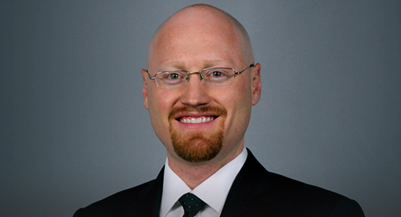
 About Dr. Anthony Jay
About Dr. Anthony Jay
